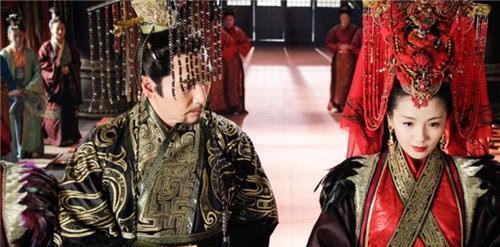As we all know, in ancient times, the social system of our country was a matrilineal clan system, that is, a social organization based on matrilineal blood relations, and women were respected in society, had a higher status than men, and held the leadership of the clan. However, with the development of society, the matrilineal line gradually transitioned to the patrilineal line, the status of men gradually improved, and the status of women deteriorated, and even became a vassal of men.

At that time, the ancients directly proposed that women should "follow the father at home, marry from the husband, and the husband dies from the son", and then there was a more specific "three from four virtues", it can be said that in ancient marriage, women basically had no right to speak and status. However, many people do not know, in fact, during the Qin Shi Huang period, women were given a lot of "privileges", and this "privilege" is surprising to look at today, so as soon as Liu Bang ascended to the throne, he quickly abolished them, so what did Qin Shi Huang stipulate in that year?
Policy No. 1: If the husband is guilty, the wife will sue first, and the wife will not accept the concubine (concubine) and the improper collection of clothes.
This means that if the husband commits a crime and the wife takes the initiative to report it, then not only can she be exempted from sitting together (referring to the system of joint punishment of those who have a certain relationship with the offender because of the crime of others), but also her dowry slave, gold and silver jewelry, clothes and utensils, etc. can be retained, which can be said to be a very humane system.
Secondly, it can be seen from here that women in the Qin Dynasty could own their own property, you know, in ancient society, the wife did not have the right to dispose of family property, and the things you brought with you when you married were the things of the husband's family by default, if you use these things again, it is private family wealth, you will be sentenced to "theft", which shows that the women of the Qin Dynasty have a higher social status.
Policy No. 2: Wife filling without writing, giving credit to the second class
This means that if a man in the Qin State wants to divorce his wife, he must report to the government, if the government does not agree, he cannot divorce his wife, if he dares to divorce his wife privately, then he must pay a fine of 2 weapons, which is not a small amount.
Policy No. 3: The husband is not guilty of killing the jiā.0
This policy directly frightened the men of the Qin Dynasty at that time, why did they say so? Let's take a look at what it means, "to send a pig" means "a boar planted in someone else's house", a metaphor for "a man who commits adultery in someone else's house".
In the Qin Dynasty, if any husband dared to cheat and become a "shepherd", then the wife could kill him and not bear any criminal responsibility. Of course, if a woman commits cheating, adultery, or the like, it is also a criminal offense. It has to be said that Qin Shi Huang, who lived more than 2,000 years ago, was able to introduce this kind of law, which was quite an "avant-garde" performance, and modern people may not be able to accept it, so this system was resisted by many men, and as soon as Liu Bang came to power, he immediately abolished the "privilege".
At the same time, the Qin law clearly stipulates that the husband beating the wife is a criminal act, and if the wife is beaten privately, the husband will be punished with resistance (that is, forced shaving of the sideburns, the ancients emphasized that the body hair skin is subject to the parents, so the punishment is also a very severe punishment for men).
So why did Qin Shi Huang give women so many rights? In fact, in the Qin Dynasty, women also had to engage in certain agricultural production, and undertake servitude, etc., and had a certain economic status, so the status of women in the Qin Dynasty was far higher than that of women of other dynasties and generations.
Reference: Qin Law